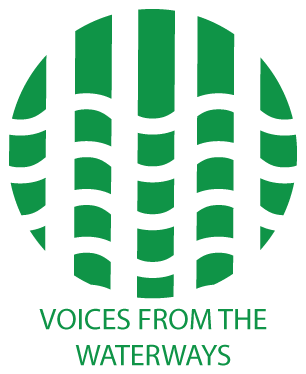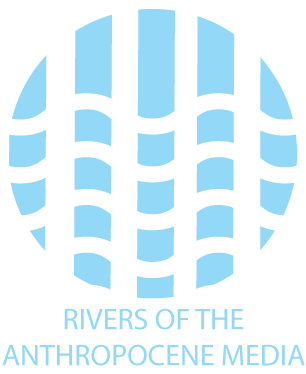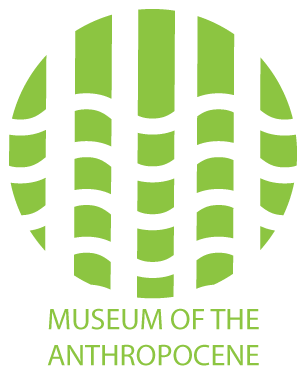Voices from the Waterways (VfW) is a born-digital oral history database devoted to capturing the relationship between people and the waterways so central to their communities. As a project of the Rivers of the Anthropocene (RoA) Project, the intent of VfW is to explore the entanglement of human and environmental systems. The database created through the project will be open access, and the recorded histories will be available through a Creative Commons CC-BY-NC license.
Introduction
The centrality of waterways to people’s lives is hard to overestimate. Historically, water systems have helped determine settlement and migration patterns, economic systems, political boundaries, and social structures. In turn, humans have been central to the structure of waterways, water systems, and water cycles. There is no waterway on the planet that has not been affected by human activity.
The entangled relationship between humans and waterways has profound effects for both human and natural systems. Waterways serve as transportation networks, irrigation systems, spaces for recreation and tourism, and power sources. They provide a central resource crucial to agriculture and industry alike. However, human use of rivers — pollution, damming, and overconsumption — can have also have catastrophic consequences for flora and fauna. Human interaction with and transformation of water systems can lead to flooding, the influx of exotic species, and a host of other unintended consequences. Because of this, waterways have long been central to community planning and the political, economic, and socio-cultural debates that this entails.
Waterways are, therefore, a powerful framework for examining the humans, their societies, and their environments. VfW will capture the attitudes, local knowledge, cultural assumptions, and the unwritten structures that govern individuals and societies — specifically as they relate to water. This is especially important at this historical moment when waterways are coming under increasing pressure from direct human use and the indirect consequences of long term anthropogenic effects on the planet.
The VfW database will serve as
- a historical archive that captures the experience of environmental change during a key moment in the Anthropocene
- a tool to allow individuals and communities to express their thoughts and experiences as they pertain to the nexus of society and environment
- a dataset to help researchers, policy makers, activists, artists, and communities interpret, plan, and create



